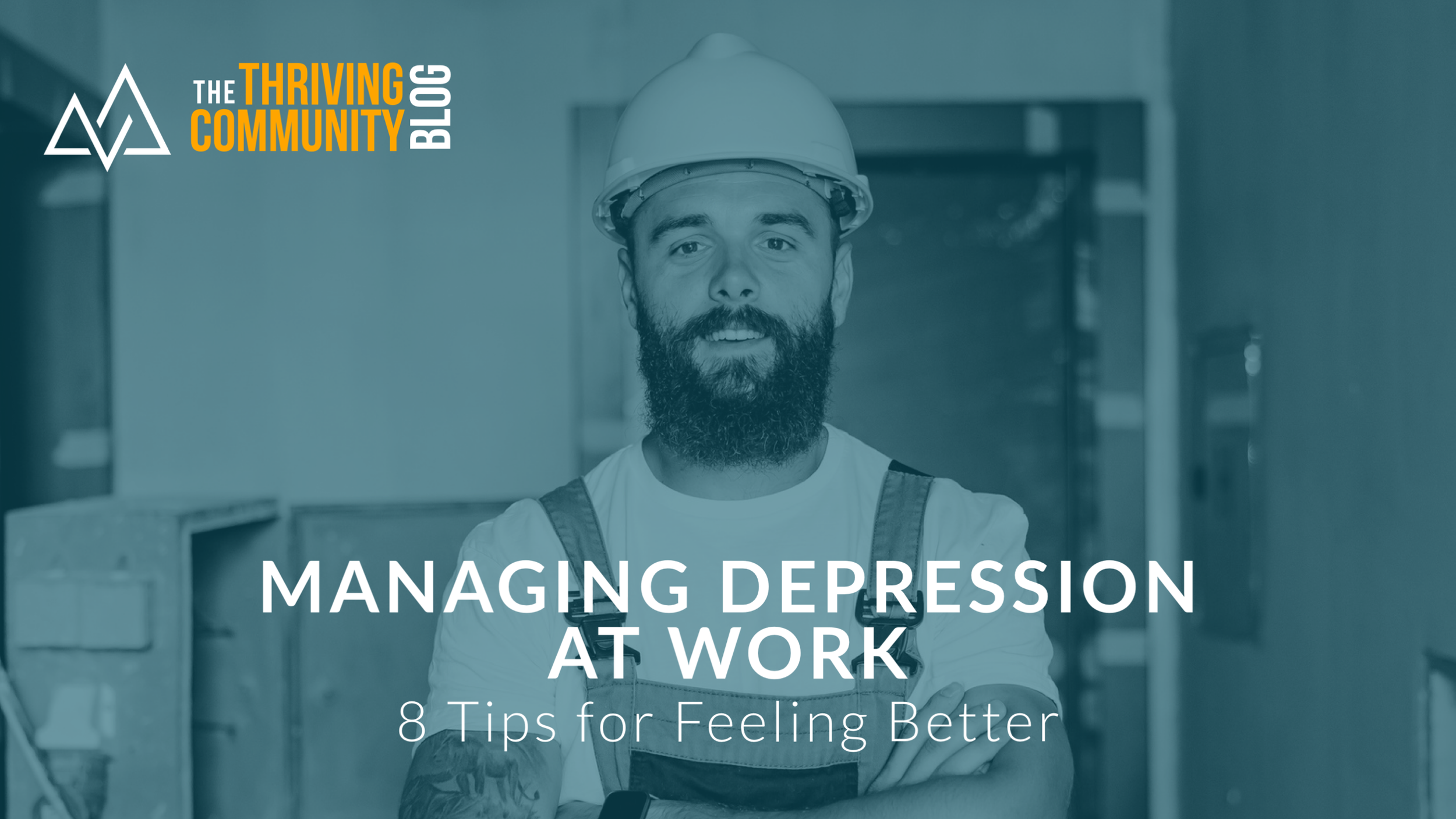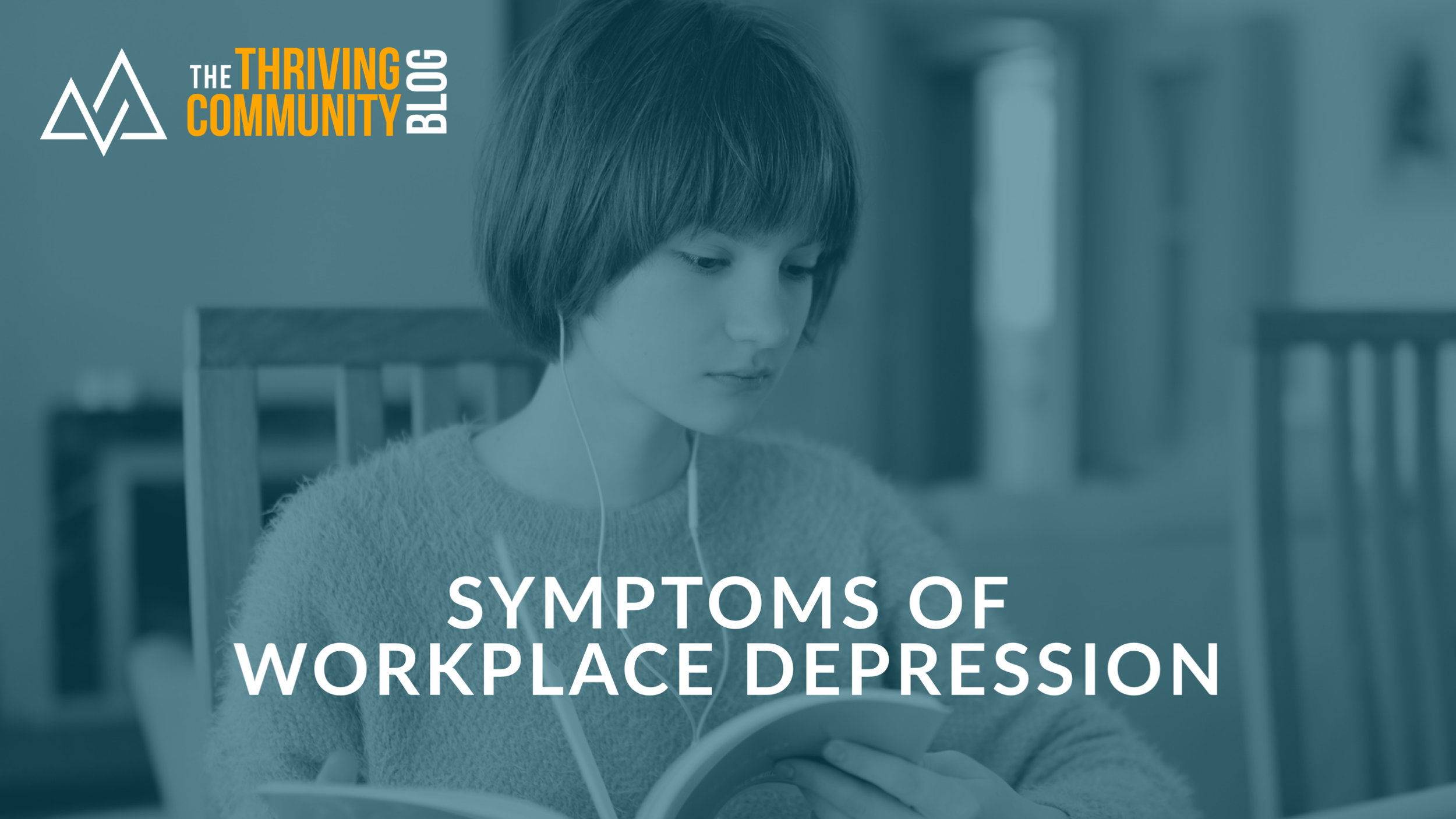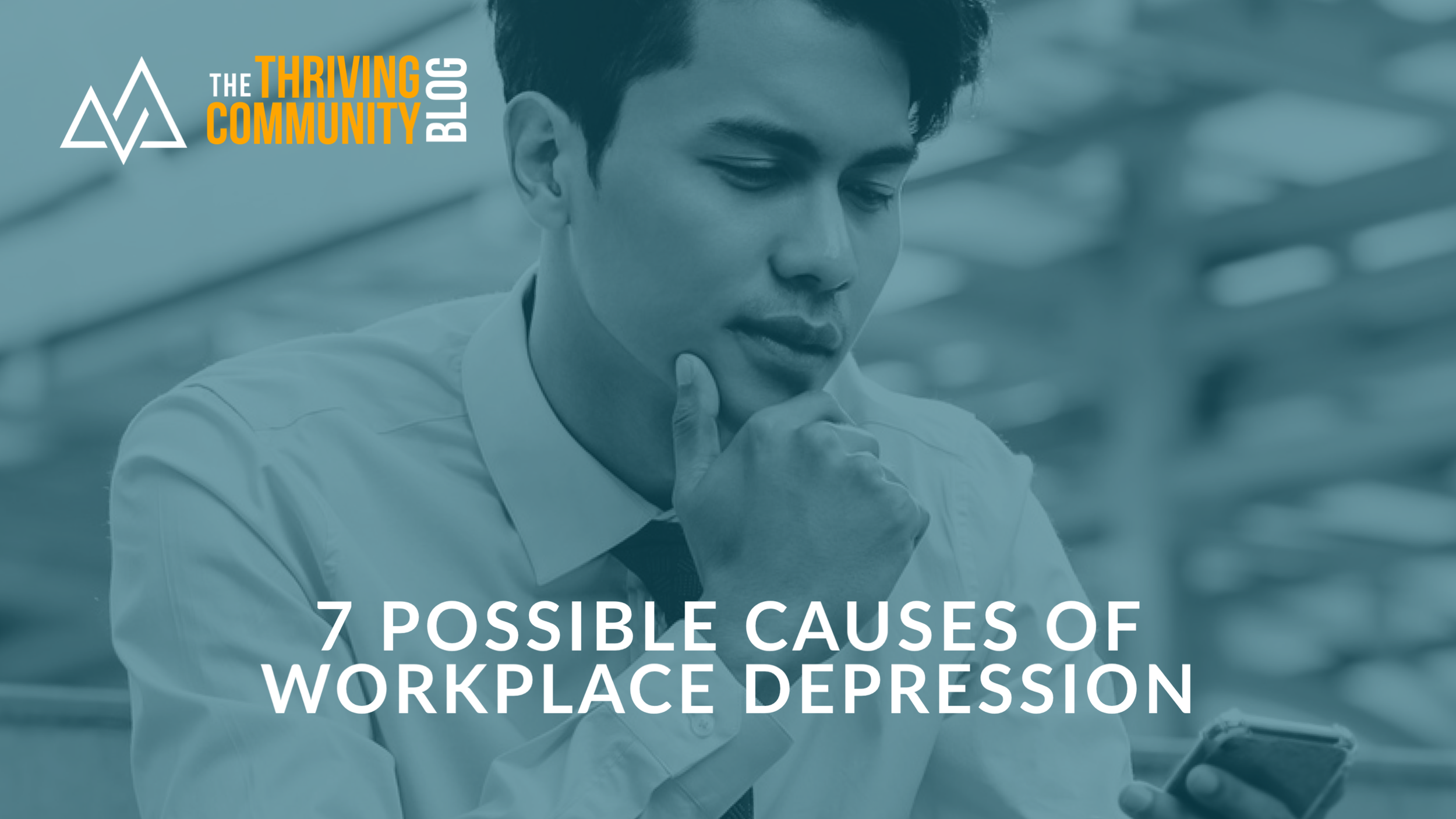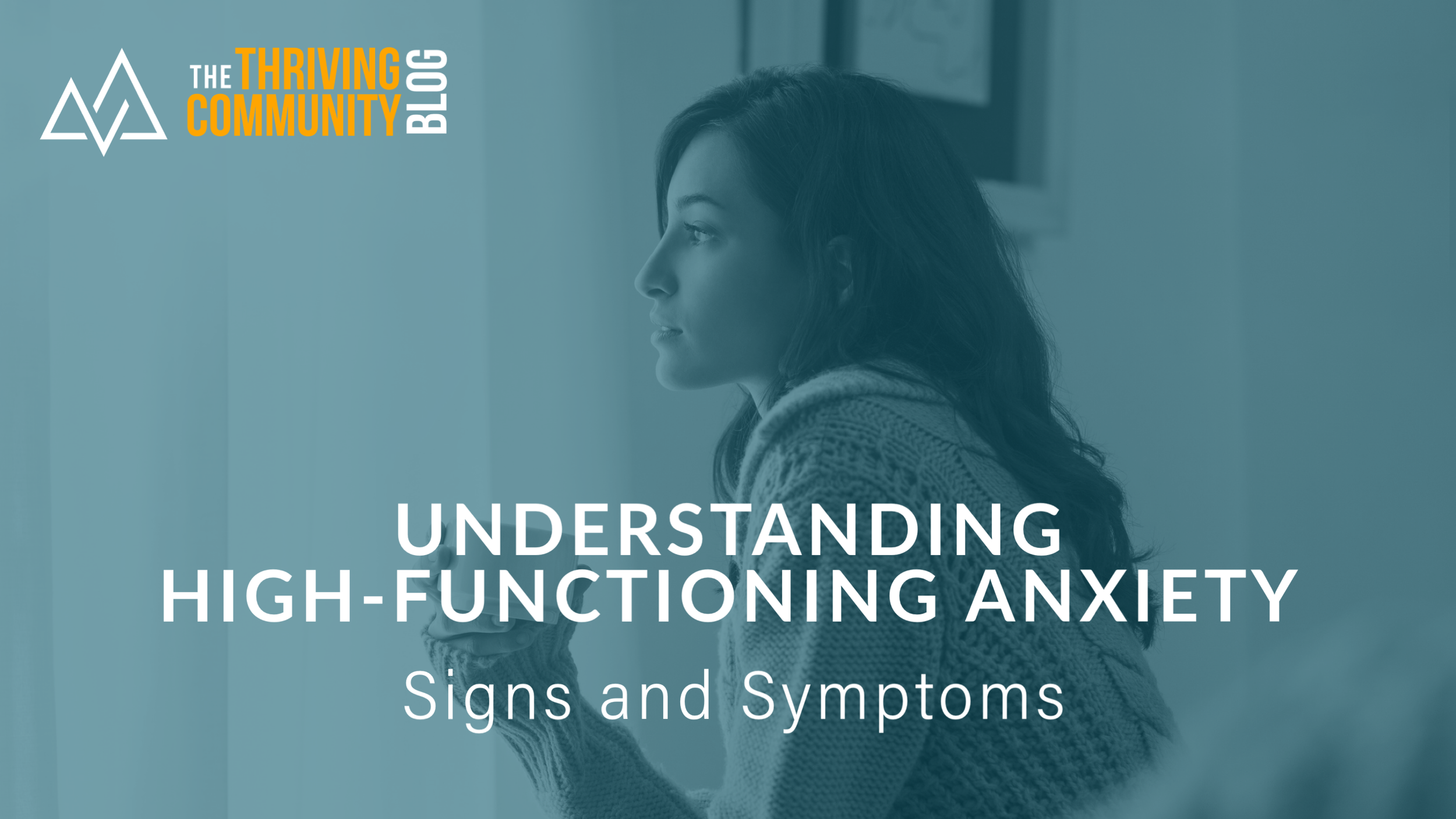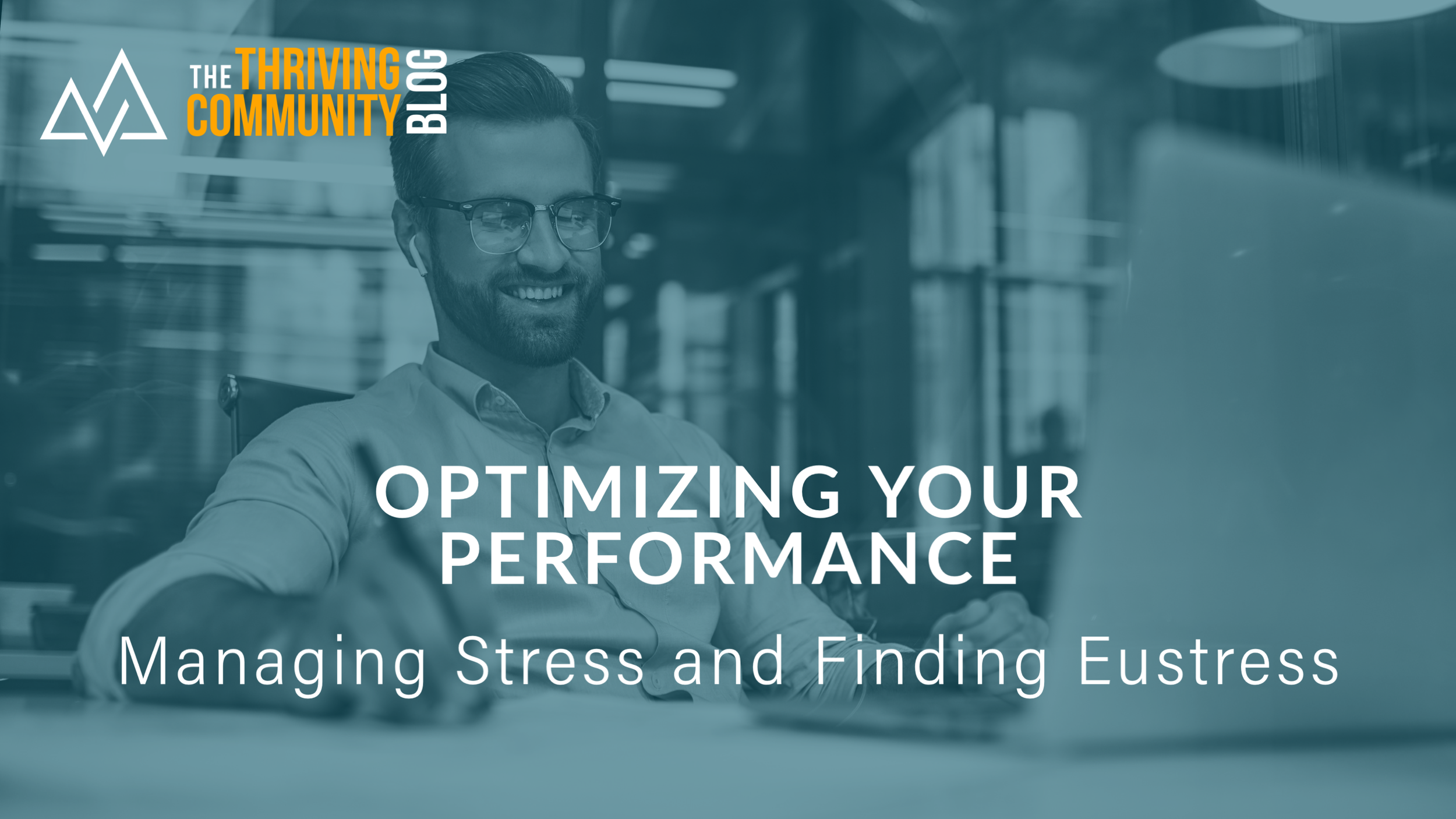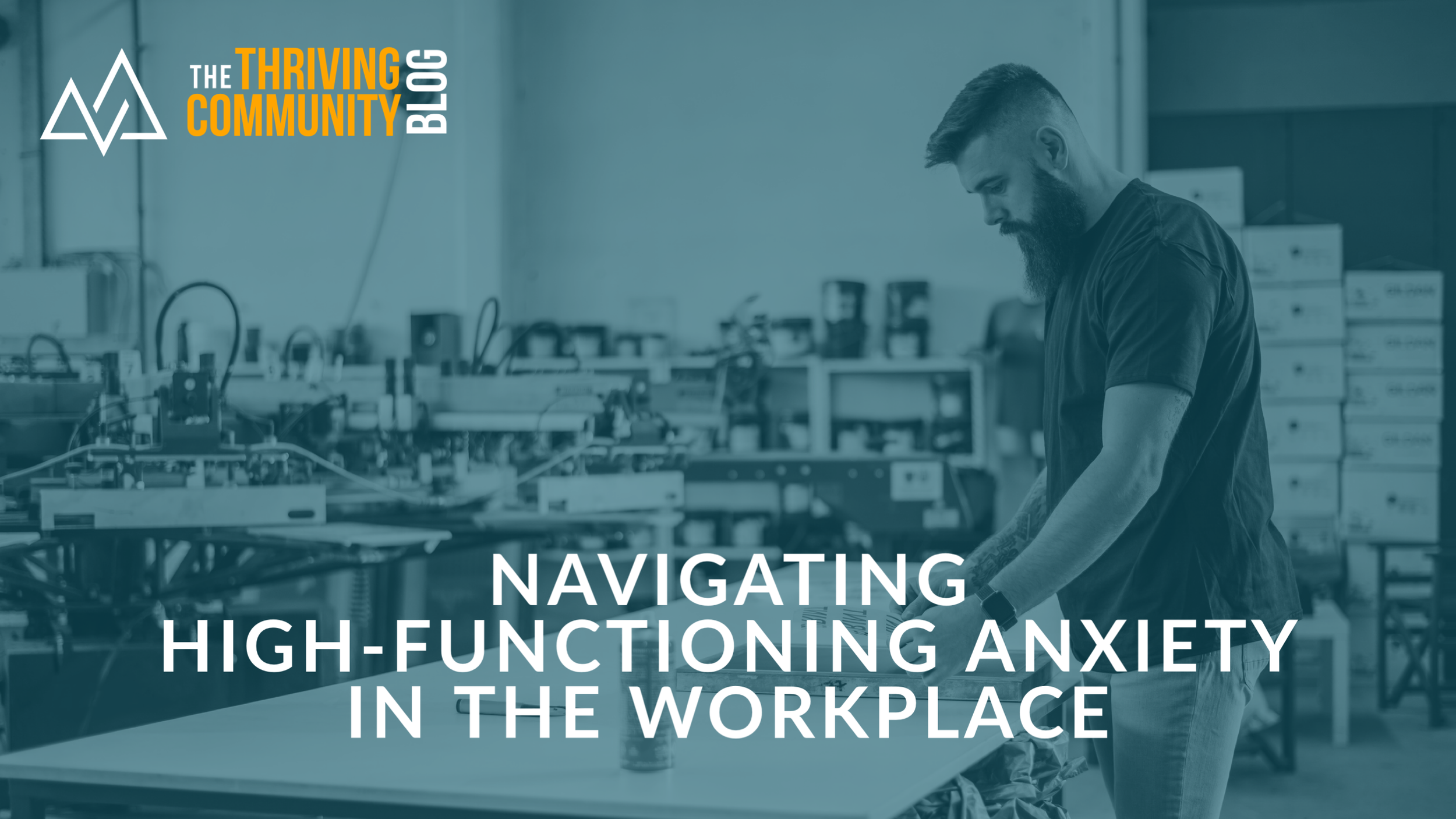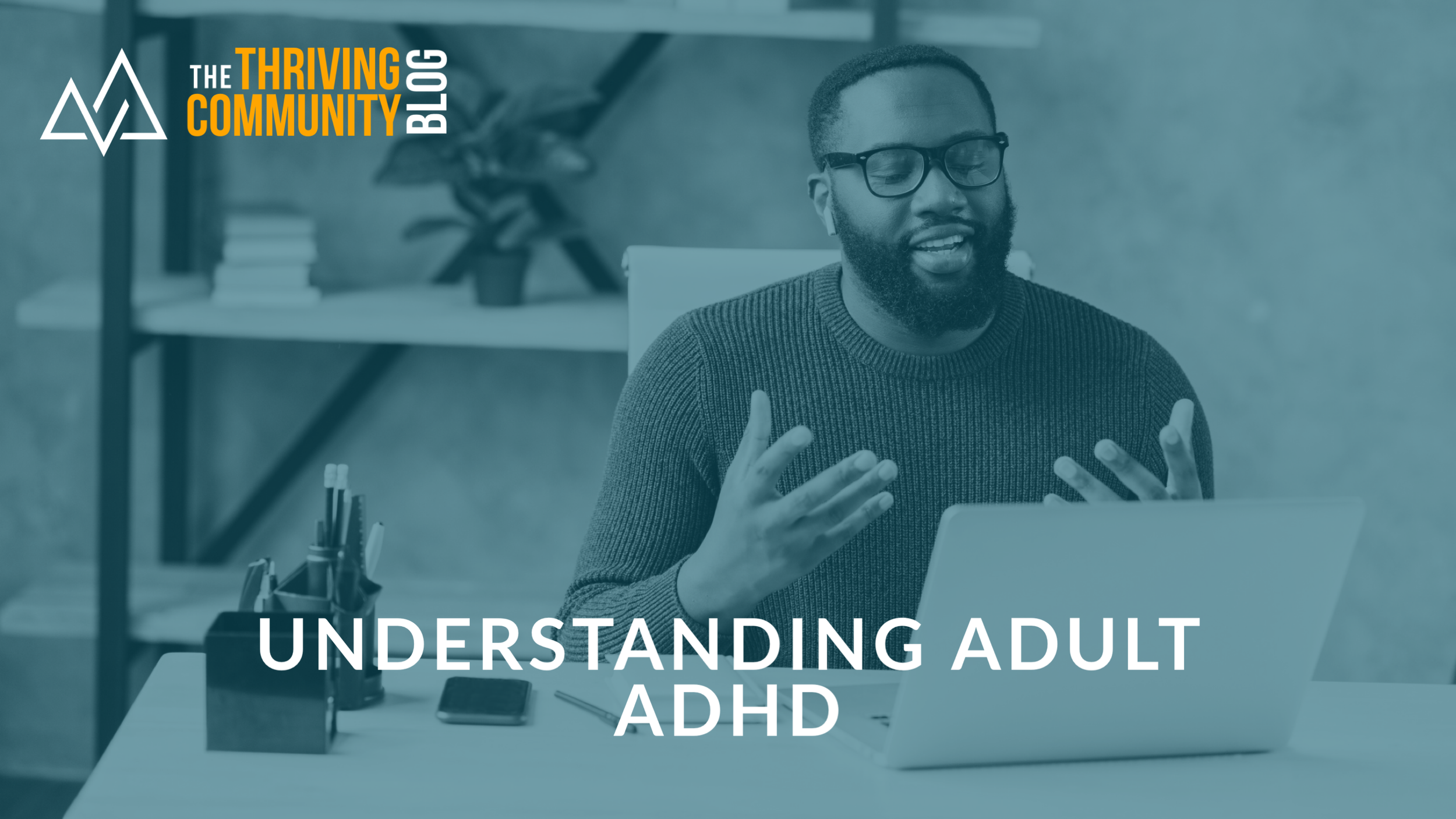
the Thriving Community
Managing Depression at Work: 8 Tips for Feeling Better
Depression can be a debilitating condition that can make even the simplest tasks overwhelming. When you're struggling with depression, going to work can seem insurmountable. But you can take steps to manage your symptoms and feel better. Here are eight tips for managing depression at work.
Symptoms of Workplace Depression
Depression is a common mental health condition that can affect anyone, regardless of age, gender, or profession. It can be particularly challenging when you're struggling with depression at work, where you spend most of your day. Symptoms of depression can vary from person to person, but some signs are specific to the workplace.
7 Possible Causes of Workplace Depression
Depression can affect anyone at any time, and it can be especially difficult to deal with when it interferes with work. Like other mental health conditions, several factors can contribute to work depression. In this blog, we’ll explore some of the common causes of work depression and how to address them.
How To Support A Depressed Employee As A Manager
Depression can be a debilitating condition that affects many people, including employees in the workplace. As a manager or supervisor, it’s important to recognize the signs of work depression and take steps to help your employees. Here are a few ways you can support a depressed employee:
Understanding High-Functioning Anxiety: Signs and Symptoms
Anxiety is a normal and expected part of life. It is a natural stress response and can help us stay alert and focused. However, when anxiety becomes excessive and interferes with daily activities, it can be a problem. High-functioning anxiety is a term that describes when people feel anxious but are still able to function in their daily lives. This type of anxiety is not an official diagnosis, but it can still be distressing and impact quality of life. Here are some signs and symptoms of high-functioning anxiety to watch out for.
Optimizing Your Performance: Managing Stress and Finding Eustress
When most of us think of stress, we think of distress, which is the bad kind of stress that we all try to avoid. However, did you know that there is also a good kind of stress called eustress? Unlike distress, eustress can be beneficial to our overall well-being and can even enhance our performance in certain situations.
Unmasking the Nice Guy Syndrome: Breaking Free from the Approval Trap
The Nice Guy Syndrome is a term coined by Dr. Robert Glover, and it refers to a set of characteristics and behaviors exhibited by individuals who believe that being "nice" is the key to receiving love, having their needs met, and living a problem-free life. However, this life strategy often fails to deliver the desired outcomes, leading Nice Guys to try even harder, often to no avail. In this blog post, we'll explore some common characteristics of the Nice Guy Syndrome.
Navigating High-Functioning Anxiety in the Workplace
In today's fast-paced work environment, anxiety has become a common issue that affects many employees. High-functioning anxiety is an anxiety disorder that often goes unrecognized because it doesn't significantly impair an individual's ability to function. However, it can still significantly impact an employee's work performance, job satisfaction, and overall well-being. In this blog post, we'll explore how high-functioning anxiety manifests at work and how employers can support employees with this condition.
Unmasking the Nice Guy Syndrome: Unpacking the Harmful Beliefs & Behaviors
At first glance, "Nice Guy" may seem like a positive descriptor for men who exhibit polite behavior toward others. However, the reality is that the Nice Guy Syndrome represents a deeply ingrained belief system that can lead to problematic behaviors and toxic relationships. In this blog, we'll explore the harmful beliefs and behaviors associated with the Nice Guy Syndrome and their impact on individuals and relationships.
Busting the Myths about Recovery
Recovery is a process that takes time, effort, and patience. It involves a series of stages that individuals go through as they overcome addiction and work towards a healthier life. However, several myths and misconceptions can create obstacles as people progress through the stages of change in addiction. In this blog, we will discuss some of the most common myths about the five stages of recovery.
Redefining Masculinity: Embracing Healthy and Inclusive Perspectives
Masculinity, a concept deeply ingrained in our society, has undergone significant scrutiny and reevaluation in recent years. As we strive for a more inclusive and equal world, it is crucial to challenge and redefine the traditional understanding of masculinity. In this blog, we will explore the multifaceted nature of masculinity, shed light on this social construct, and highlight the importance of embracing healthy and inclusive perspectives.
Work-Life Integration: A New Approach to Achieving Happiness and Productivity
You've probably heard about work-life balance, right? It's been the buzzword in offices and boardrooms for years. But guess what? There's a new kid on the block, and it's called work-life integration. Work-life integration is the real deal, and it's time to ditch the outdated notion of work-life balance. But what exactly does it mean? Allow me to break it down for you in plain, simple terms.
Understanding Adult ADHD
Attention deficit/hyperactivity disorder (ADHD) is a well-known condition commonly associated with difficulties in impulse control, hyperactivity, and a reduced ability to concentrate for extended periods. While it is often believed that ADHD is an issue that only affects children and young adults, growing research suggests that ADHD does not disappear with age. It is estimated that symptoms persist into adulthood for as many as 60% of those diagnosed with the disorder during childhood.
ADHD in the Workplace
One of the most critical areas for accommodation is executive functioning abilities. Executive functions are a set of cognitive skills that include prioritizing, organizing, strategizing, maintaining focus, and working memory, all of which are essential for tasks that require sustained mental effort. The executive functioning symptoms of ADHD can include difficulty planning and prioritizing tasks, struggles with motivation and initiating tasks, poor organizational skills, difficulty completing tasks from start to finish, and poor attention to detail.
From "Nice Guy" to Genuine Kindness: Tips for Overcoming Nice Guy Syndrome
Being kind and considerate is a desirable trait often admired and respected. Helping others, being pleasant, and practicing generosity can make us feel good about ourselves and positively impact those around us. However, if we start to expect something in return for our kindness and feel disappointed or resentful when it doesn't happen, we may be dealing with what is commonly referred to as "nice guy syndrome" (NGS).
True Self-Care: Why It Matters and How to Find Yours
Self-care has become a buzzword recently, but what does it mean? Many of us associate self-care with bubble baths, massages, and indulging in our favorite treats. While these activities can be enjoyable, they don't always provide the long-lasting benefits we need to refuel and recharge.

